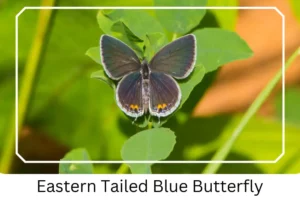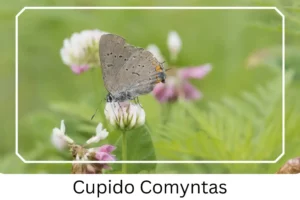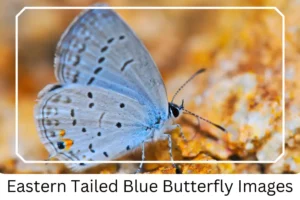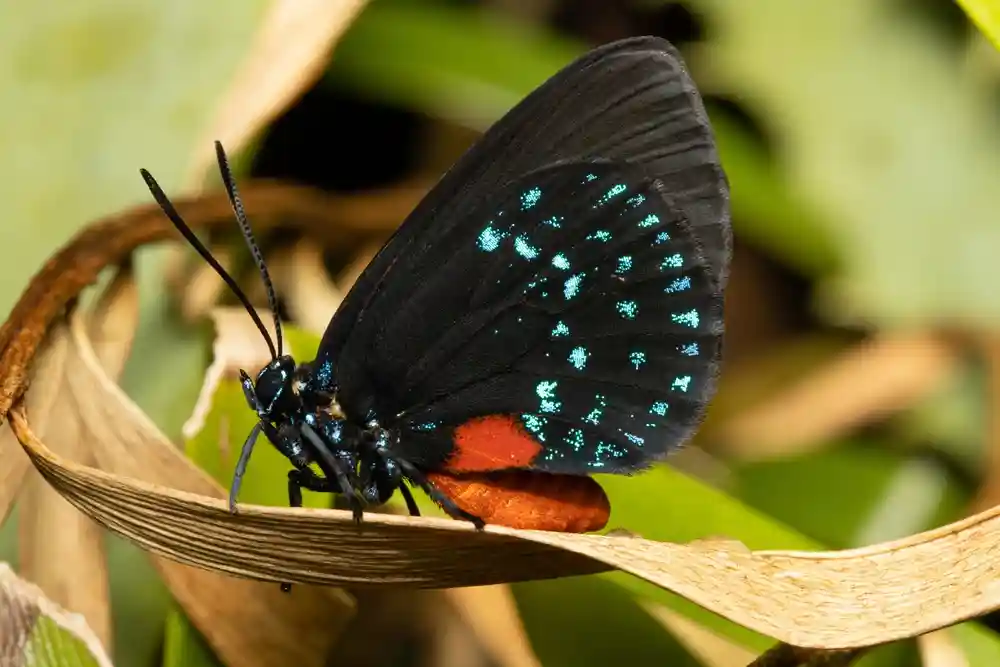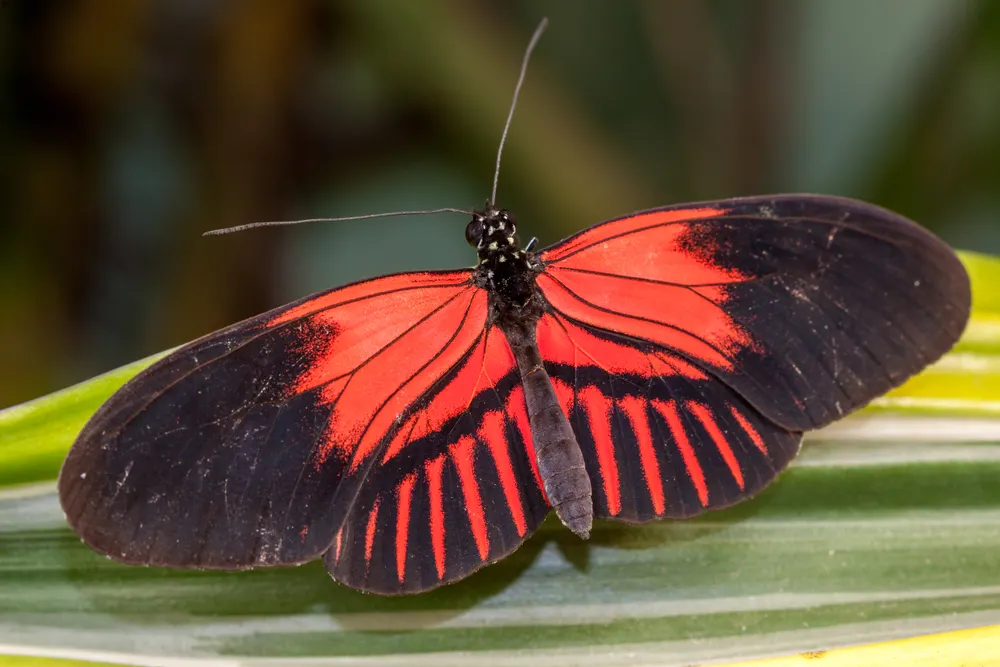Eastern Tailed Blue (Cupido comyntas)
The Eastern Tailed Blue butterfly, a small yet captivating species, thrives across parts of the United States, enchanting observers with its delicate beauty and intricate life cycle. This guide aims to offer a comprehensive understanding of this butterfly, from its varied colors in different life stages to its unique behaviors and habitat preferences.
Scientific Classification
- Family: Lycaenidae
- Genus: Cupido
- Common names: Eastern tailed-blue
- Scientific Name: Cupido comyntas
Overview
Belonging to the family Lycaenidae, the Eastern Tailed Blue butterfly is known for its adaptability and widespread presence throughout the eastern regions of North America. It showcases a remarkable journey from egg to adult, with each stage of its life presenting unique characteristics and challenges. This butterfly not only adds beauty to its environment but also plays a role in the pollination of various plants.
Description and Identification
Caterpillar
The journey of the Eastern Tailed Blue begins with the caterpillar, which exhibits a wide color range from light tan, gray, green, to pinkish olive. Post-hatching, these caterpillars enter a hibernation period during winter, reemerging to feed on buds, flowers, and seeds of their host plants.
Pupa
In spring, the caterpillar transitions to the pupa stage, hanging from the tender leaves of host plants. This stage marks a period of transformation, leading to the emergence of the adult butterfly.
Adult Butterfly
Sexual Dimorphism: Adult Eastern Tailed Blues exhibit distinct sexual dimorphism. Males typically boast an iridescent blue upper side, while females range from lighter blue to brown or charcoal, with some displaying shades of pink and purple.
Color and Appearance: With wings open, the male’s vibrant blue contrasts with the female’s varied hues. The underside of the wings showcases shades from tan to blue-white, adorned with black to orange chevron marks and a characteristic trailing tail.
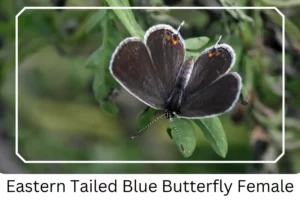
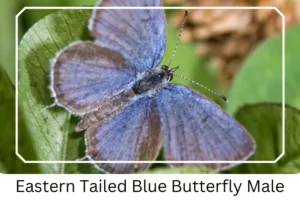 Average Wingspan: The wingspan of the Eastern Tailed Blue ranges from 21 to 29 mm (0.83 to 1.14 inches), contributing to their delicate appearance.
Average Wingspan: The wingspan of the Eastern Tailed Blue ranges from 21 to 29 mm (0.83 to 1.14 inches), contributing to their delicate appearance.
Flight Pattern: These butterflies are known for their fast, low-height flight, darting among plants and flowers.
Eggs
Eggs are strategically laid on flower buds, supporting up to three broods annually.
Quick Facts | |
| Distribution | Found across the eastern part of North America. |
| Habitat | Prefers open, sunny areas like weedy fields and disturbed habitats. |
| Lifespan of Adults | 4 to 10 days |
| Host Plants | Feeds on a variety of legumes, including vetches and clover. |
| Adult Diet | Enjoys nectar from flowers like wild strawberry, winter cress, sweet white clover, cinquefoils, asters, and shepherd’s needle. |
How to Identify Eastern Tailed Blue?
Identifying the Eastern Tailed Blue can be a delightful challenge for enthusiasts. Key indicators include the small size, distinct tails on the hindwings, and the sexual dimorphism in coloration. Observers should look for the iridescent blue of the males and the variable colors of the females. The underside patterns, with their chevron marks and tails, are also distinctive. During basking, they may be seen perching with open wings at a 45° angle, a behavior not commonly observed in other butterflies. Spotting these butterflies often requires patience and a keen eye, especially in their preferred sunny, open habitats.
Did You Know?
- Eastern Tailed Blues perch with open wings at a 45° angle while basking, a unique behavior among Lycaenids.
- They secrete a chemical compound that attracts protective ants, showcasing a fascinating example of mutualism.
- These butterflies can have up to three broods per year, indicating a high reproductive capacity and adaptability to varying conditions.
Conclusion
The Eastern Tailed Blue butterfly, with its complex life cycle, intriguing behaviors, and beautiful coloration, offers a window into the rich tapestry of nature. By understanding and appreciating these delicate creatures, we can foster a deeper connection to the natural world and the intricate ecosystems that sustain it.
Eastern Tailed Blue Pictures

Scientific Classification

- Family: Lycaenidae
- Genus: Cupido
- Common names: Eastern tailed-blue
- Scientific Name: Cupido comyntas

